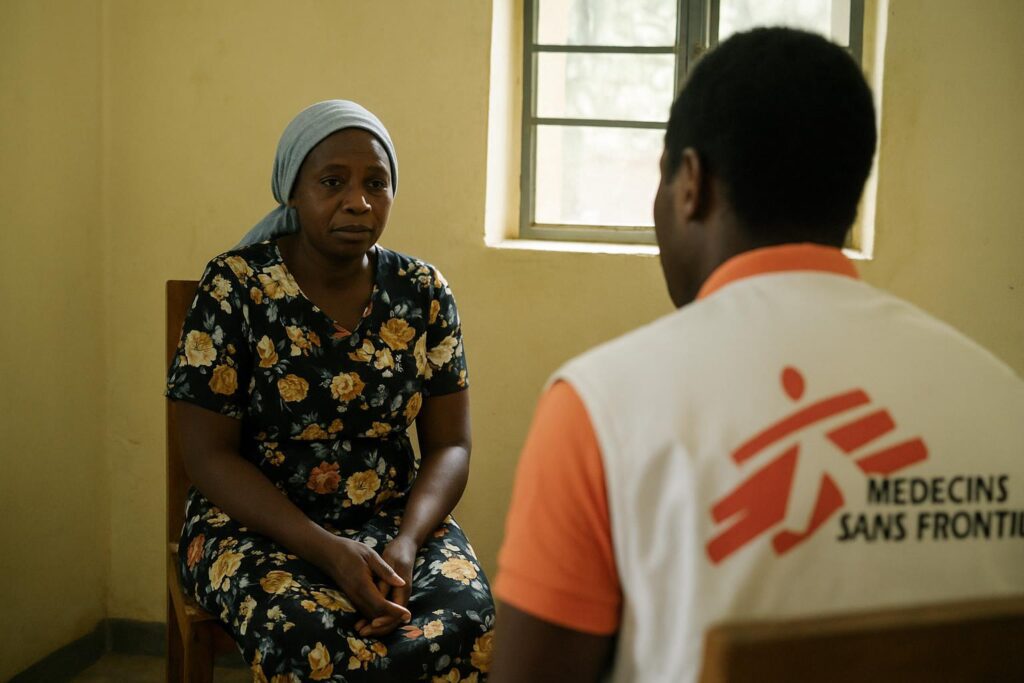A National Conversation Begins
A radio interview in Juba has thrust mental health to the forefront of South Sudanese debate. Médecins Sans Frontières urged authorities, teachers and chiefs alike to recognise psychological distress as a public health priority on par with malaria or cholera, warning that silence perpetuates suffering.
Mental Health Stigma in South Sudan
Doctors Without Borders, better known as MSF, says mental health care must leave the shadows. Speaking on Eye Radio’s Dawn show, supervisor Monyjok Monylang urged schools, clinics and village forums to normalise conversations that too often remain whispered or ignored.
Conflict’s Invisible Scars
Years of civil strife uprooted families, drained incomes and shattered daily routines. Psychologists in Malakal report persistent insomnia, flashbacks and despair among patients who fled violence multiple times. Yet most facilities still lack a single counsellor, leaving trauma untreated while communities struggle to rebuild homes and livelihoods.
Survivors Need Integrated Care
MSF says survivors of sexual and gender-based violence face a double burden: physical recovery and emotional healing. Without legal aid or safe shelters, many remain silent. Monylang argues that pairing psychosocial assistance with justice services could deter future abuses and restore individual dignity.
Training the Frontline
Only a handful of South Sudan’s nurses receive formal mental health instruction. MSF calls on the Health Ministry to embed counselling modules in every medical syllabus, allocate psychotropic medications, and set up referral networks that reach remote islands along the Nile.
Pathways to Sustainable Support
Community leaders interviewed by Eye Radio welcome the proposals but warn that finances remain tight. International partners fund most psychiatric activities today. Observers believe a budget line in Juba’s forthcoming health strategy could stabilise services and prove that mental wellbeing is a fundamental right, not a privilege.
Looking Ahead
MSF stresses that progress will depend on consistent policy and predictable funding, not one-off campaigns. As national budgeting begins this fiscal quarter, advocates hope lawmakers will earmark resources that turn today’s pledges into tomorrow’s clinics, ensuring that mental health truly becomes everyone’s business.


